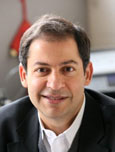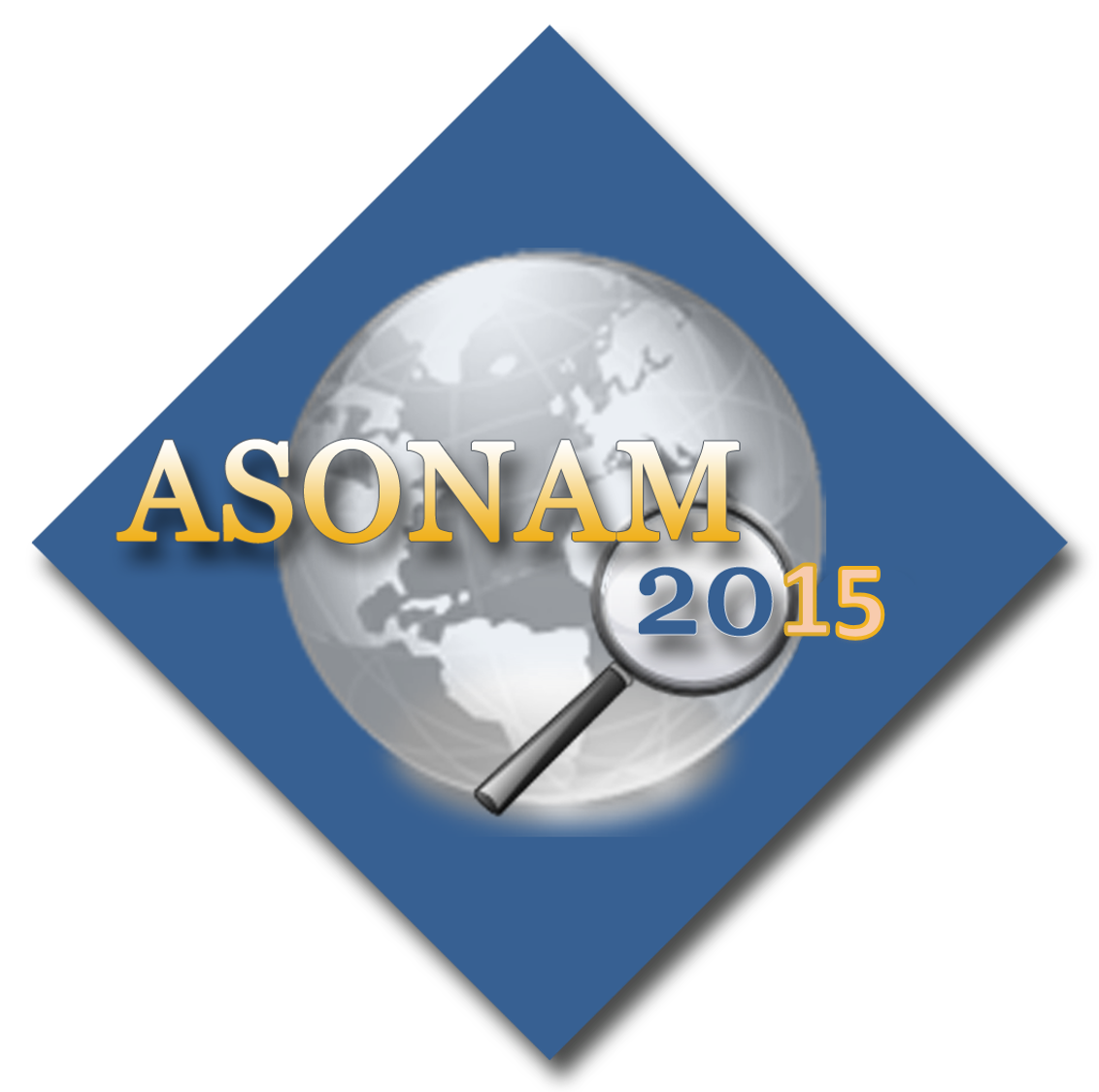Interpersonal Trust Dynamics in Online Systems – Models and Applications
- Jaideep Srivastava University of Minnesota, USA and Qatar Foundation, Qatar
Abstract
Understanding the nature of online interpersonal trust continues to gain importance, especially as we increasingly perform activities and form relationships online. Trust forms a critical substrate on which activities with economic consequence, e.g. e-commerce transactions, or relationships with emotional consequence, e.g. friendships and romances, are built.
There is a vast literature on interpersonal trust in the social sciences. However, with the mass adoption of the Internet in our daily lives, and the ability to capture high resolution data on its use, we are at the threshold of a deeper understanding of the dynamics behind interpersonal trust. It is now becoming possible to study the phenomenon of trust dynamics at a much finer granularity than ever before. Online social systems such as Multiplayer Online Games (MOGs) and Virtual Worlds (VWs) have become increasingly popular and have communities comprising tens of millions. They serve as unprecedented tools to theorize and empirically model the trust dynamics of individuals, groups, and networks within large communities.
This talk consists of four parts. First, we describe findings from the Virtual World Exploratorium; a multi-institutional, multi-disciplinary project which uses data from commercial MMOGs and VWs to study many fields of social science, including sociology, social psychology, organization theory, group dynamics, macro-economics, etc. Second, describe a model for a multi-relational, multi-activity environment, where ‘low familiarity threshold’ activities like chatting, grouping, and transactions form the scaffolding for the formation of ‘high familiarity threshold’ relationships like trust formation. Third, using this model, we describe our studies on the dynamics of online interpersonal trust, including like trust formation, trust reciprocation, trust revocation, and the nature of trust transitivity and trust cascading. Finally, we describe some applications of this model for tasks like understanding the vulnerabilities of a social network to rumor spreading, and inoculation against it.
Short Bio
 Jaideep Srivastava is the Director of the Social Computing division at QCRI. He is on leave from the University of Minnesota, where he directs a laboratory focusing on research in Web Mining, Social Analytics, and Health Analytics. He is a Fellow of the Institute of Electrical and Electronics Engineers (IEEE), has been an IEEE Distinguished Visitor, and is a Distinguished Fellow of Allina’s Center for Healthcare Innovation. He has been awarded the Distinguished Research Contributions Award of the PAKDD, for his lifetime contributions to the field of data mining. Six of his papers have won best paper awards.
Jaideep Srivastava is the Director of the Social Computing division at QCRI. He is on leave from the University of Minnesota, where he directs a laboratory focusing on research in Web Mining, Social Analytics, and Health Analytics. He is a Fellow of the Institute of Electrical and Electronics Engineers (IEEE), has been an IEEE Distinguished Visitor, and is a Distinguished Fellow of Allina’s Center for Healthcare Innovation. He has been awarded the Distinguished Research Contributions Award of the PAKDD, for his lifetime contributions to the field of data mining. Six of his papers have won best paper awards.
Dr. Srivastava is currently co-leading a multi-institutional, multi-disciplinary project in the rapidly emerging area of social computing (http://vwobservatory.com/). He has significant experience in the industry, in both consulting and executive roles. He was the data mining architect at Amazon.com (www.amazon.com), built a data analytics department at Yodlee (www.yodlee.com), and served as the Chief Technology Officer for Persistent Systems (www.persistentsys.com). He is the Co-Founder and Chief Scientific Officer of Ninja Metrics (www.ninjametrics.com), which brings his research in social analytics to the commercial world. He is an adviser to CogCubed (www.cogcubed.com), an innovative company whose goal is to revolutionize the diagnosis and therapy of cognitive disorders through the use of online games, to LeadId (www.leadid.com), the market leader in cross-industry lead management, and to Kipsu (http://kipsu.com/), which is providing an innovative approach to improving service quality in the hospitality industry.
Dr. Srivastava has held distinguished professorships at Heilongjiang University and Wuhan University, China. He has held advisory positions with the State of Minnesota, and the State of Maharashtra, India. He is a technology advisor to the Unique ID (UID) project of the Government of India, whose goal is to provide biometrics-based social security numbers to the 1.2 Billion citizens of India.
Dr. Srivastava has delivered invited talks in over 30 countries, including more than a dozen keynote addresses at major international conferences. He has a Bachelors of Technology from the Indian Institute of Technology (IIT), Kanpur, India, and MS and PhD from the University of California, Berkeley.
Communities and privacy in mobile phone social networks
- Vincent Blondel Université catholique de Louvain, Belgium
Abstract
We describe several recent results on large network analysis with a special emphasis on community detection and on the analysis of mobile phone datasets. In particular, we describe the Louvain method that and can be routinely used for analyzing networks with billions of nodes or links. We analyze communities obtained on a nationwide dataset of criminal records, as well as on a social network constructed from mobile phone communications that span periods covering several months. We also describe applications of mobile phone dataset analysis for a range of applications such as urban planning, traffic optimization, monitoring of development policy, crisis management, and control of epidemics. With these applications in mind we overview results obtained in the ''Data for Development'' (D4D) challenge on the analysis of mobile phone datasets. We analyze the privacy threats of anonymized mobile phone dataset and show that human behavior puts fundamental natural constraints to the privacy of individuals.
Short Bio
 Vincent D. Blondel is professor of applied mathematics and president of the University of Louvain (Belgium). He is affiliated with the Massachusetts Institute of Technology (Cambridge, USA) where he was a visiting professor and Fulbright scholar. He has held various appointments, including at Oxford University, at the Royal Institute of Technology (Stockholm, Sweden), at INRIA (Paris), and at the University of California (Santa Barbara). Vincent has directed more than thirty PhD and Master thesis. He is an IEEE Fellow and is the recipient of several international prizes, including the IEEE Ruberti prize and the SIAM prize on control and systems theory. He is a pioneer in the analysis of mobile phone datasets and the organizer of several international challenges on mobile phone datasets analysis. His recent work has been widely featured, including in Wired, Technology Review, Le Monde, La Recherche, BBC, CNN, Der Spiegel, The Wall Street Journal and The New York Times.
Vincent D. Blondel is professor of applied mathematics and president of the University of Louvain (Belgium). He is affiliated with the Massachusetts Institute of Technology (Cambridge, USA) where he was a visiting professor and Fulbright scholar. He has held various appointments, including at Oxford University, at the Royal Institute of Technology (Stockholm, Sweden), at INRIA (Paris), and at the University of California (Santa Barbara). Vincent has directed more than thirty PhD and Master thesis. He is an IEEE Fellow and is the recipient of several international prizes, including the IEEE Ruberti prize and the SIAM prize on control and systems theory. He is a pioneer in the analysis of mobile phone datasets and the organizer of several international challenges on mobile phone datasets analysis. His recent work has been widely featured, including in Wired, Technology Review, Le Monde, La Recherche, BBC, CNN, Der Spiegel, The Wall Street Journal and The New York Times.
The Dynamics of Social Influence and Reputation Online
- Sinan Aral MIT Sloan School of Management, USA
Abstract
Identity and reputation drive some of the most important relational decisions we make online: Who to follow or link to, whose information to trust, whose opinion to rely on when choosing a product or service, and whose content to consume and share. Yet, we know very little about the dynamics of social influence and relational reputation and how they affect our decision making. Sinan will describe a series of large scale experiments that explore the behavioral dynamics catalyzed by social influence, identity and reputation online. He will explore some of the implications for bias in online ratings, social advertising and the ability to generate cascades of behavior through peer to peer influence in networks. Sinan will argue that new research on social influence and relational reputation could help guide our platform design and social policy decisions in light of the rising importance of peer effects and reputation online.
Short Bio
 Sinan is the David Austin Professor of Management at MIT, where he holds joint Professorships in the IT and Marketing groups and leads the “Social Analytics and Experimentation” Pillar of MIT’s Initiative on the Digital Economy. He is also the Chief Scientist at Humin, a social platform developing what the Wall Street Journal called the first “Social Operating System.” Sinan was the Scholar-in-Residence at the New York Times R&D Lab in 2013 and has worked closely with Facebook, Yahoo, Microsoft, IBM, Intel, Cisco, Oracle, SAP and many other leading Fortune 500 firms on realizing business value from big data analytics, social media and IT investments. His research on social influence and information diffusion in social networks has won numerous awards including the Microsoft Faculty Fellowship, the PopTech Science Fellowship, an NSF CAREER Award, a Fulbright Scholarship and seven “Best Paper” awards. He was also recently named one of the “World’s Top 40 Business School Professors Under 40” by Poets & Quants. In his spare time, he cooks, skis and tell jokes about his own cooking and skiing. His most recent hobby is learning from his one year old son. You can find Sinan on Twitter @sinanaral.
Sinan is the David Austin Professor of Management at MIT, where he holds joint Professorships in the IT and Marketing groups and leads the “Social Analytics and Experimentation” Pillar of MIT’s Initiative on the Digital Economy. He is also the Chief Scientist at Humin, a social platform developing what the Wall Street Journal called the first “Social Operating System.” Sinan was the Scholar-in-Residence at the New York Times R&D Lab in 2013 and has worked closely with Facebook, Yahoo, Microsoft, IBM, Intel, Cisco, Oracle, SAP and many other leading Fortune 500 firms on realizing business value from big data analytics, social media and IT investments. His research on social influence and information diffusion in social networks has won numerous awards including the Microsoft Faculty Fellowship, the PopTech Science Fellowship, an NSF CAREER Award, a Fulbright Scholarship and seven “Best Paper” awards. He was also recently named one of the “World’s Top 40 Business School Professors Under 40” by Poets & Quants. In his spare time, he cooks, skis and tell jokes about his own cooking and skiing. His most recent hobby is learning from his one year old son. You can find Sinan on Twitter @sinanaral.
Wisdom of Crowds or Wisdom of a Few?
- Ricardo Baeza-Yates Yahoo Labs, USA
Abstract
In this keynote we give an introduction to wisdom of crowds in the Web, the long tail of web content, and the bias involved in the generation of user generated content (UGC). This bias creates the wisdom of ad hoc crowds or the wisdom of a few. Although it is well known that user activity in most settings follows a power law, that is, few people do a lot, while most do nothing, there are few studies that characterize well this activity. In a recent analysis of social network data we corroborated that a small percentage of the active users (passive users are the majority) represent at least the 50% of the UGC. As a sub-product, we also found a lower bound for the digital desert, the content in the Web that nobody reads. These results implies that most of the wisdom comes from a few users, which is not that surprising, as the Web is a reflection of our own society, where economical or political power also is in the hands of minorities.
Short Bio
 Ricardo Baeza-Yates is VP of Research for Yahoo Labs leading teams in United States,
Europe and Latin America since 2006 and based in Sunnyvale, California, since August 2014.
During this time he has lead the labs in Barcelona and Santiago de Chile. Between 2008
and 2012 he also oversaw the Haifa lab. He is also part time Professor at the Dept. of
Information and Communication Technologies of the Universitat Pompeu Fabra,
in Barcelona, Spain. During 2005 he was an ICREA research professor at the same
university. Until 2004 he was Professor and before founder and Director of the
Center for Web Research at the Dept. of Computing Science of the University of Chile
(in leave of absence until today). He obtained a Ph.D. in CS from the University of
Waterloo, Canada, in 1989. Before he obtained two masters (M.Sc. CS & M.Eng. EE) and
the electronics engineer degree from the University of Chile in Santiago.
He is co-author of the best-seller Modern Information Retrieval textbook,
published in 1999 by Addison-Wesley with a second enlarged edition in 2011,
that won the ASIST 2012 Book of the Year award. He is also co-author of the
2nd edition of the Handbook of Algorithms and Data Structures, Addison-Wesley,
1991; and co-editor of Information Retrieval: Algorithms and Data Structures,
Prentice-Hall, 1992, among more than 500 other publications. From 2002 to 2004
he was elected to the board of governors of the IEEE Computer Society and in
2012 he was elected for the ACM Council. He has received the Organization of
American States award for young researchers in exact sciences (1993), the Graham Medal
for innovation in computing given by the University of Waterloo to distinguished
ex-alumni (2007), the CLEI Latin American distinction for contributions to CS in
the region (2009), and the National Award of the Chilean Association of Engineers (2010),
among other distinctions. In 2003 he was the first computer scientist to be elected
to the Chilean Academy of Sciences and since 2010 is a founding member of the Chilean
Academy of Engineering. In 2009 he was named ACM Fellow and in 2011 IEEE Fellow.
Ricardo Baeza-Yates is VP of Research for Yahoo Labs leading teams in United States,
Europe and Latin America since 2006 and based in Sunnyvale, California, since August 2014.
During this time he has lead the labs in Barcelona and Santiago de Chile. Between 2008
and 2012 he also oversaw the Haifa lab. He is also part time Professor at the Dept. of
Information and Communication Technologies of the Universitat Pompeu Fabra,
in Barcelona, Spain. During 2005 he was an ICREA research professor at the same
university. Until 2004 he was Professor and before founder and Director of the
Center for Web Research at the Dept. of Computing Science of the University of Chile
(in leave of absence until today). He obtained a Ph.D. in CS from the University of
Waterloo, Canada, in 1989. Before he obtained two masters (M.Sc. CS & M.Eng. EE) and
the electronics engineer degree from the University of Chile in Santiago.
He is co-author of the best-seller Modern Information Retrieval textbook,
published in 1999 by Addison-Wesley with a second enlarged edition in 2011,
that won the ASIST 2012 Book of the Year award. He is also co-author of the
2nd edition of the Handbook of Algorithms and Data Structures, Addison-Wesley,
1991; and co-editor of Information Retrieval: Algorithms and Data Structures,
Prentice-Hall, 1992, among more than 500 other publications. From 2002 to 2004
he was elected to the board of governors of the IEEE Computer Society and in
2012 he was elected for the ACM Council. He has received the Organization of
American States award for young researchers in exact sciences (1993), the Graham Medal
for innovation in computing given by the University of Waterloo to distinguished
ex-alumni (2007), the CLEI Latin American distinction for contributions to CS in
the region (2009), and the National Award of the Chilean Association of Engineers (2010),
among other distinctions. In 2003 he was the first computer scientist to be elected
to the Chilean Academy of Sciences and since 2010 is a founding member of the Chilean
Academy of Engineering. In 2009 he was named ACM Fellow and in 2011 IEEE Fellow.
Leveraging Computational Social Science to address Grand Societal Challenges
- Noshir Contractor Northwestern University, Dept. of Industrial Engineering & Management Sciences, USA
Abstract
The increased access to big data about social phenomena in general, and network data in particular, has been a windfall for social scientists. But these exciting opportunities must be accompanied with careful reflection on how big data can motivate new theories and methods. Using examples of his research in the area of networks, Contractor will argue that Computational Social Science serves as the foundation to unleash the intellectual insights locked in big data. More importantly, he will illustrate how these insights offer social scientists in general, and social network scholars in particular, an unprecedented opportunity to engage more actively in monitoring, anticipating and designing interventions to address grand societal challenges.
Short Bio
 Noshir Contractor is the Jane S. & William J. White Professor of Behavioral Sciences in the McCormick School of Engineering & Applied Science, the School of Communication and the Kellogg School of Management at Northwestern University, USA. He is the Director of the Science of Networks in Communities (SONIC) Research Group at Northwestern University and a board member of the Web Science Trust. He is investigating factors that lead to the formation, maintenance, and dissolution of dynamically linked social and knowledge networks in a wide variety of contexts.
Noshir Contractor is the Jane S. & William J. White Professor of Behavioral Sciences in the McCormick School of Engineering & Applied Science, the School of Communication and the Kellogg School of Management at Northwestern University, USA. He is the Director of the Science of Networks in Communities (SONIC) Research Group at Northwestern University and a board member of the Web Science Trust. He is investigating factors that lead to the formation, maintenance, and dissolution of dynamically linked social and knowledge networks in a wide variety of contexts.
His research program has been funded continuously for almost two decades by major grants from the U.S. National Science Foundation with additional funding from the U.S. National Institutes of Health (NIH), Army Research Laboratory, Air Force Research Laboratory, Army Research Institute, NASA, Rockefeller Foundation, Gates Foundation, and the MacArthur Foundation.
His book titled Theories of Communication Networks (co-authored with Professor Peter Monge and published by Oxford University Press), received the 2003 Book of the Year award from the Organizational Communication Division of the National Communication Association. He was a recipient of the 2014 National Communication Association’s Distinguished Scholar Award and in 2015 he was elected a Fellow of the International Communication Association. He is also the co-founder and Chairman of Syndio, which offers organizations products and services based on network analytics.
Professor Contractor has a Bachelor’s degree in Electrical Engineering from the Indian Institute of Technology, Madras and a Ph.D. from the Annenberg School of Communication at the University of Southern California.







